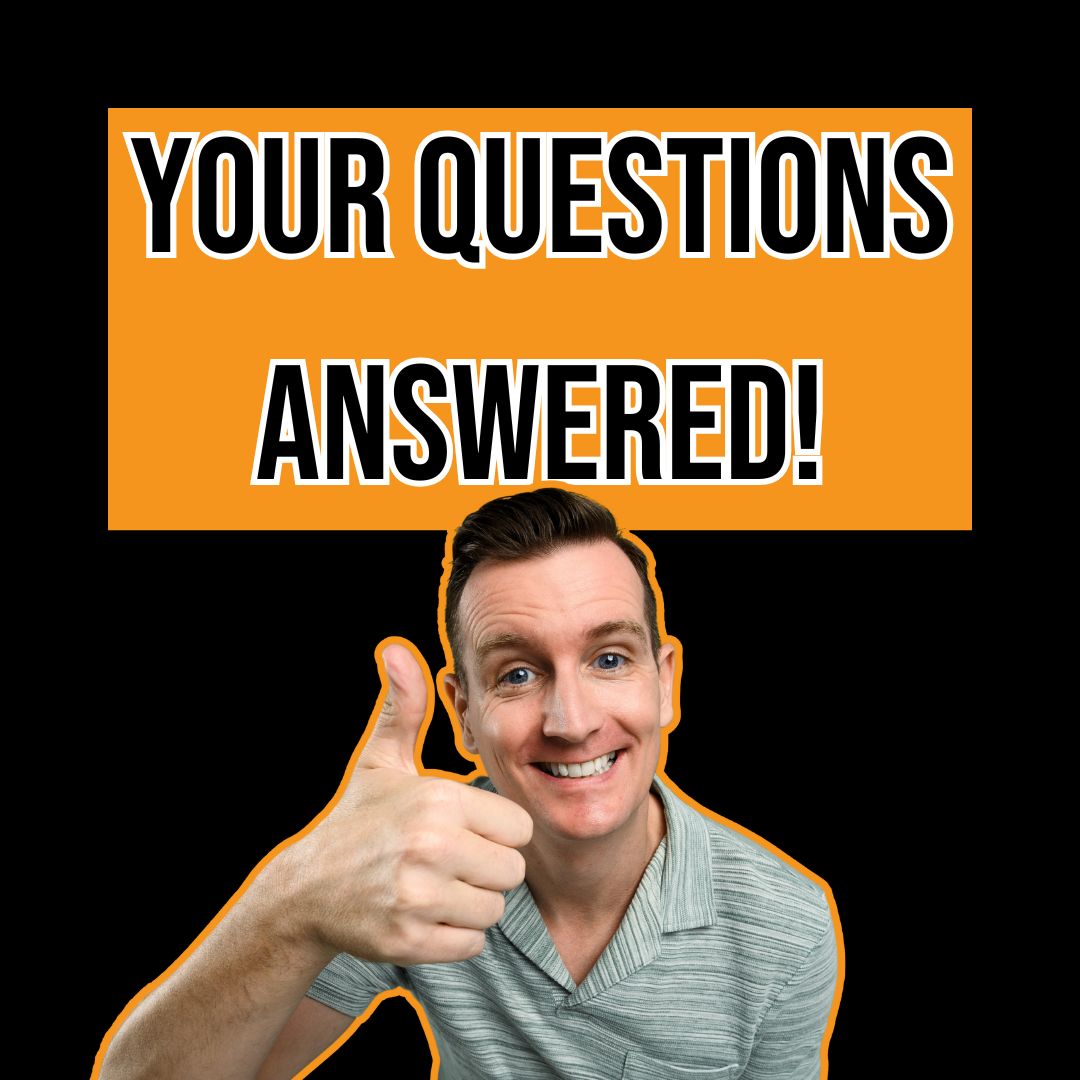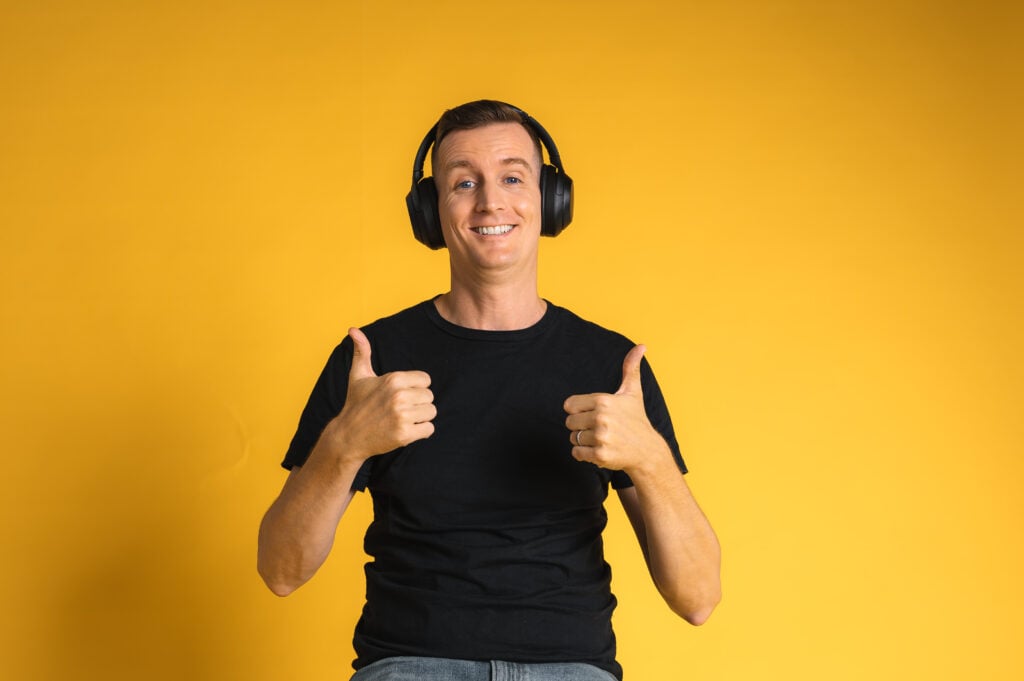In one of my recent episodes, I did something different. I didn’t ask my audience for questions like I usually do. Instead, I asked my best mate ChatGPT to give me five questions about podcasting. I hadn’t seen them before recording, so everything was off the cuff.
I wasn’t sure what to expect, but the questions hit right at the heart of what matters in podcasting. They made me stop and think about what I’ve learned over the years — through trial, error, and experience.
In this post, I want to share those podcasting lessons with you. If you’re a podcaster, I hope these insights help you avoid some mistakes I’ve made, and remind you of what’s really important when it comes to making a show people love.
1. How do you know when it’s time to pivot your podcast format or content?
Every podcaster worries about downloads. I used to check mine constantly, and I still do. Numbers matter, but they don’t tell the whole story.
I’ve learned that if your numbers stay steady, you’re doing okay. You’ve built an audience who keeps coming back. But if your downloads are going down, that’s a warning sign. That’s when you need to think about changing your format, your content, or even your style.
But here’s the bigger lesson: engagement is more important than downloads. Your hosting platform will tell you how many times people clicked play, but that doesn’t mean they listened for long. If you want the real picture, you have to look at Apple Podcasts or Spotify for Podcasters. That’s where you’ll see how long people stayed with your episode.
For long-form podcasts, 60–80% engagement is strong. If you see people dropping off after five minutes, you’ve got a problem. That was a big insight for me. It’s not just about how many people press play. It’s about how many stick around.
2. What’s the one thing most podcasters waste time on that doesn’t actually grow their audience?
I’ve spent years going back and forth with social media. Sometimes I put lots of energy into it, sometimes I ignore it. What I learned is this: social media is not the magic answer to podcast growth.
Yes, it’s fun. Yes, it feels good when people like your posts. But here’s the problem — most people don’t even listen to podcasts. Even today, only just over 50% of people in the US listened to a podcast in the last month. And that’s the biggest market in the world.
So when you post on Facebook or Instagram, half the people who see it might not even know what a podcast is. You’re not only asking them to listen to your podcast, you’re asking them to change their behavior completely. That’s a tough thing to do. Companies spend millions trying to change behavior.
That’s why I now believe social media is one of the biggest wastes of time for podcasters. If you use it, use it for connection, not growth. Create a private group if you want, and bring your listeners together. But don’t expect it to build your audience.
If you want to grow, spend your energy on organic marketing, word of mouth, or even a little paid advertising in podcast spaces like Acast or Podnews. That’s where you’ll find people who already listen to podcasts.
3. If you had to start your podcast from scratch today, what would you do differently?
When I look back at how I started compared to where I am now, it feels like two different worlds. Today I have a studio, lights, cameras, and even an assistant. But when I started, it was just me and whatever equipment I had.
If I had to start again, what would I do differently? Honestly, everything and nothing. The truth is, you just have to start. That’s the biggest lesson.
Don’t wait for the perfect setup. Don’t spend months choosing the right mic. Don’t worry about branding or colors. Just record. Even if it’s on your phone. Because once you start, you’ll learn. You’ll improve. You’ll figure it out as you go.
When I think about my early episodes, part of me cringes. But another part of me is proud. I’m proud that I didn’t wait. And if I hadn’t started messy, I wouldn’t be where I am now.
4. How can small podcasts attract sponsors when they don’t have huge download numbers?
This is one of the toughest questions for small podcasters. How do you get sponsors if you don’t have massive numbers?
Here’s the reality: the CPM model doesn’t work for most of us. Right now, you need about 1,000 downloads in 30 days to make $29. That puts you in the top 1% of podcasts already, and it’s still not much money.
So what do you do if you’re not there? You go niche. You look for sponsors who care about your specific audience, not just big numbers. If your podcast is about accounting, talk to accounting firms. If it’s about knitting, talk to wool brands. Local businesses and niche brands often sponsor things not for ROI, but to support the community.
The trick is to package your value. Even if you only get 50 downloads per episode, across 10 episodes, that’s 500 listens. Multiply that by three ad placements per episode (beginning, middle, end), and suddenly you’re offering 1,500 impressions. Add in logos on your artwork, social media mentions, and short video clips — and now you’re offering real visibility.
It may not sound like much, but for a small brand, it’s worth something. If you can get even $500 for 10 episodes, that’s money you can put back into hosting, editing, or ads.
That’s the key insight here: don’t think of sponsorship as a way to get rich. Think of it as fuel to keep your podcast going and growing.
5. What’s the best way to keep listeners coming back week after week?
Getting listeners is hard. Keeping them is even harder. What I’ve seen from the best podcasts is that they make their audience feel like part of a club.
One of my favorite shows, My Dad Wrote a Porno, calls their listeners “Belinkers” after one of the characters. Another show, The Matt and Jerry Show, called their fans “Bespo-key Dokey.” It sounds silly, but it works. It creates belonging.
I even tried this myself. On my Vietnam podcast, I called listeners “Bop Dales,” after a local snack. I didn’t keep it going, which I regret, but I saw the power in it. People want to feel included.
That’s why my advice is: give your listeners a name, bring them into the process, and make them feel part of your world. You don’t need to do it on every platform. Choose one space to connect and stick with it.
When people feel like they’re in a club, they’ll come back week after week.
Conclusion – Podcasting Lessons
This Q&A episode taught me more than I expected. It reminded me that podcasting isn’t about chasing numbers — it’s about connection, creativity, and consistency.
At the end of the day, podcasting has to be fun. If you’re having fun, your listeners will too. And if you keep showing up, the right people will find you.
If you’re a podcaster and you want help with any part of this journey — from recording to editing to growth — I’d love to talk. You can always reach me at Seven Million Bikes Podcasts.


